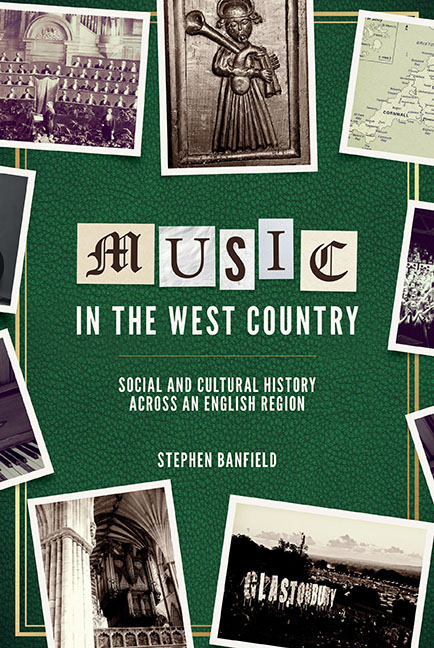Book contents
- Frontmatter
- Dedication
- Contents
- List of Illustrations
- Preface and Acknowledgements
- List of Abbreviations
- Author's Note
- 1 Landscapes and Soundscapes
- 2 Musical Authority: Organs
- 3 Musical Incorporation: Bands and Choirs
- 4 Musical Livings I: The Prosopography
- 5 Musical Livings II: Individual Case Studies
- 6 Musical Capitalisation I: Events and Inventions
- 7 Musical Capitalisation II: Institutions
- Epilogue: The Measure of a Region
- Bibliography
- Index
- Titles listed here were originally published under the series title Music in Britain, 1600-1900
Epilogue: The Measure of a Region
Published online by Cambridge University Press: 31 August 2019
- Frontmatter
- Dedication
- Contents
- List of Illustrations
- Preface and Acknowledgements
- List of Abbreviations
- Author's Note
- 1 Landscapes and Soundscapes
- 2 Musical Authority: Organs
- 3 Musical Incorporation: Bands and Choirs
- 4 Musical Livings I: The Prosopography
- 5 Musical Livings II: Individual Case Studies
- 6 Musical Capitalisation I: Events and Inventions
- 7 Musical Capitalisation II: Institutions
- Epilogue: The Measure of a Region
- Bibliography
- Index
- Titles listed here were originally published under the series title Music in Britain, 1600-1900
Summary
BRITAIN's EU membership referendum of June 2016, discussed in the Preface, measured something decisively, and while the interpretation of the figures is open to question, the result was not, and it will have changed Britain for ever. Other things about the west country could be or have been similarly measured: its GDP, for example, for purposes of comparison with those of other regions and the ensuing balance of trade. (The GDP per capita of the West of England, which ranks fourth of the nine official regions, is less than a 9 per cent share of the English total: London has nearly 26 per cent.) But has anyone ever tried to measure music?
The sum total of all musical production and consumption in a region could in theory be calculated in similar ways to GDP, and for similar purposes. This would include net export and import balances in relation to the metropolis, other regions, and other countries. It would, however, soon lead to the desire to put a figure on qualities not habitually turned into quantities, such as the value of personal skills produced within the region but consumed outside it, or vice versa. (Fanny Moody would be an example of the former, the current Glastonbury Festival of the latter.) It would also quickly lead to an attempt at calculating value in terms somewhat akin to the measurement of half-life in radioactive substances: how great has been the resonance over time of a particular musical product, centre of production, type of activity, or person? Given that this question of resonance or, to return to Bourdieu, distinction, is precisely what universities’ Research Evaluation Framework submissions are now having to wrestle with under the name of ‘impact’, does anyone have the stomach for this?
Perhaps not. Yet it is difficult to conclude a comprehensive study of musicking within a region over six or seven centuries without wanting to know what it has all amounted to. Has activity ebbed and flowed? Was there a golden age? Or is there some kind of a formula for the amount of music a community or a network of communities needs that does not vary much with time?
- Type
- Chapter
- Information
- Music in the West CountrySocial and Cultural History Across an English Region, pp. 368 - 376Publisher: Boydell & BrewerPrint publication year: 2018

